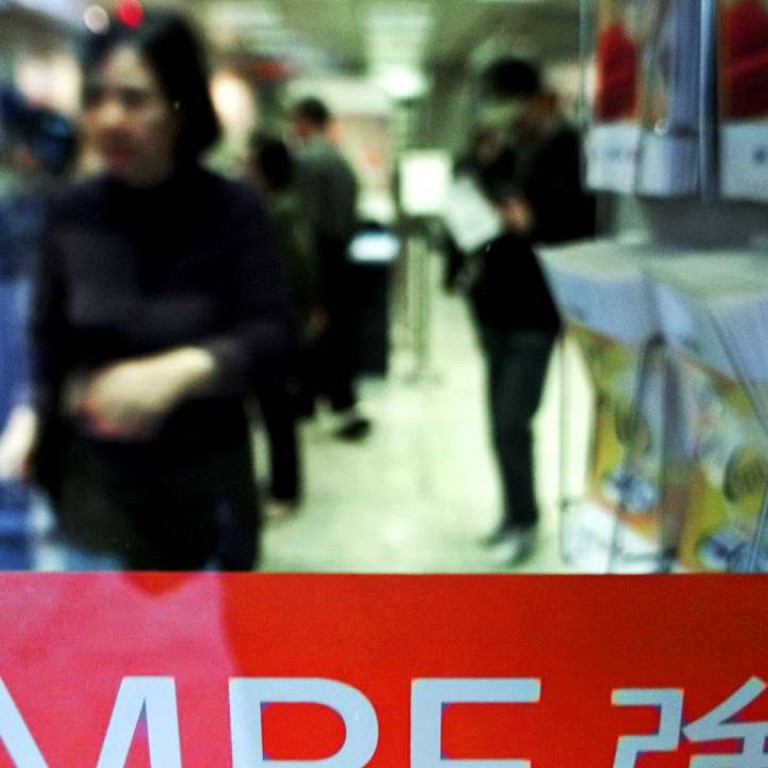
MPF loses 4.53 per cent of value in first half
Managers warn of volatility ahead, and urge employees to adopt diversified approach to reduce risk
Britain’s vote to leave the European Union is expected to have hurt investments within Hong Kong’s Mandatory Provident Fund, experts said on Wednesday, after data revealed a 4.53 per cent drop in values during the first half year.
Managers are now warning of further volatility ahead, and have urged employees to adopt a diversified approach to their constituent investments, to reduce further risk.
Of the funds that cover 2.5 million employee members in Hong Kong, Japanese equities were the worst performers, with a loss of 12.47 per cent from the beginning of this year to June 24, according to the data from Morningstar.
They were followed by European equity funds, down 9.3 per cent, while the Greater China equity funds lost 7.17 per cent. Hong Kong equity funds lost 7.18 per cent.
Global bonds were the best performers in the period, with a 4.71 per cent return, while Asian bond funds also increased 4.33 per cent in value.
Fidelity International investment director Terrence Kan Lap-hang said the equities markets in the first six months were hurt by the Chinese economic slowdown, the continued terrorist threat globally, and nerves over the Brexit vote in Britain.
He said volatility is likely to continue, as Britain could need two years to negotiate exit terms with the EU.
Members should always take a diversified investment approach, a mixture of bonds and equities over the long term, to fend off any short-term volatilities
“European equities tumbled the most after the UK voted to leave, with Europe’s markets enduring their largest single day loss [on Friday] in eight years,” Kan said.
While advising against panic moves, he said investors should consider altering their MPF portfolio.
“As many MPF members expect to use the proceeds of their MPF in between ten and 20 years, they should always take a diversified investment approach, a mixture of bonds and equities over the long term, to fend off any short-term volatilities,” Kan said.
Luk Kim-ping, head of the Hong Kong defined contribution business at Fidelity International, said the falls in European and Japanese equities would benefit MPF members as their regular monthly contribution have a dollar-averaging effect, with members buying into the market, regardless of the market movement.
“The averaging effect is best proven during a volatile market,” said Luk.
“The Hang Seng Index dropped 5.37 per cent in the first five months of this year, while the MPF dollar cost averaging can bring in a return of 0.54 per cent.”
Luk said he had not seen many investors redeem their MPF stock funds in the first half, with more taking a longer view.
Kan said the current market may be volatile, but the situation is still better than in 2008 as there were no banks needing bailed out, or huge defaults to deal with.
“Central banks in Japan and Europe have adopted monetary easing policies to support their economies.
“The only country that has the conditions to increase interest rates would be the US, but it is set to have a presidential election, which means the US Federal Reserve is likely to be cautious on making any rate rise decisions,” Kan said.

